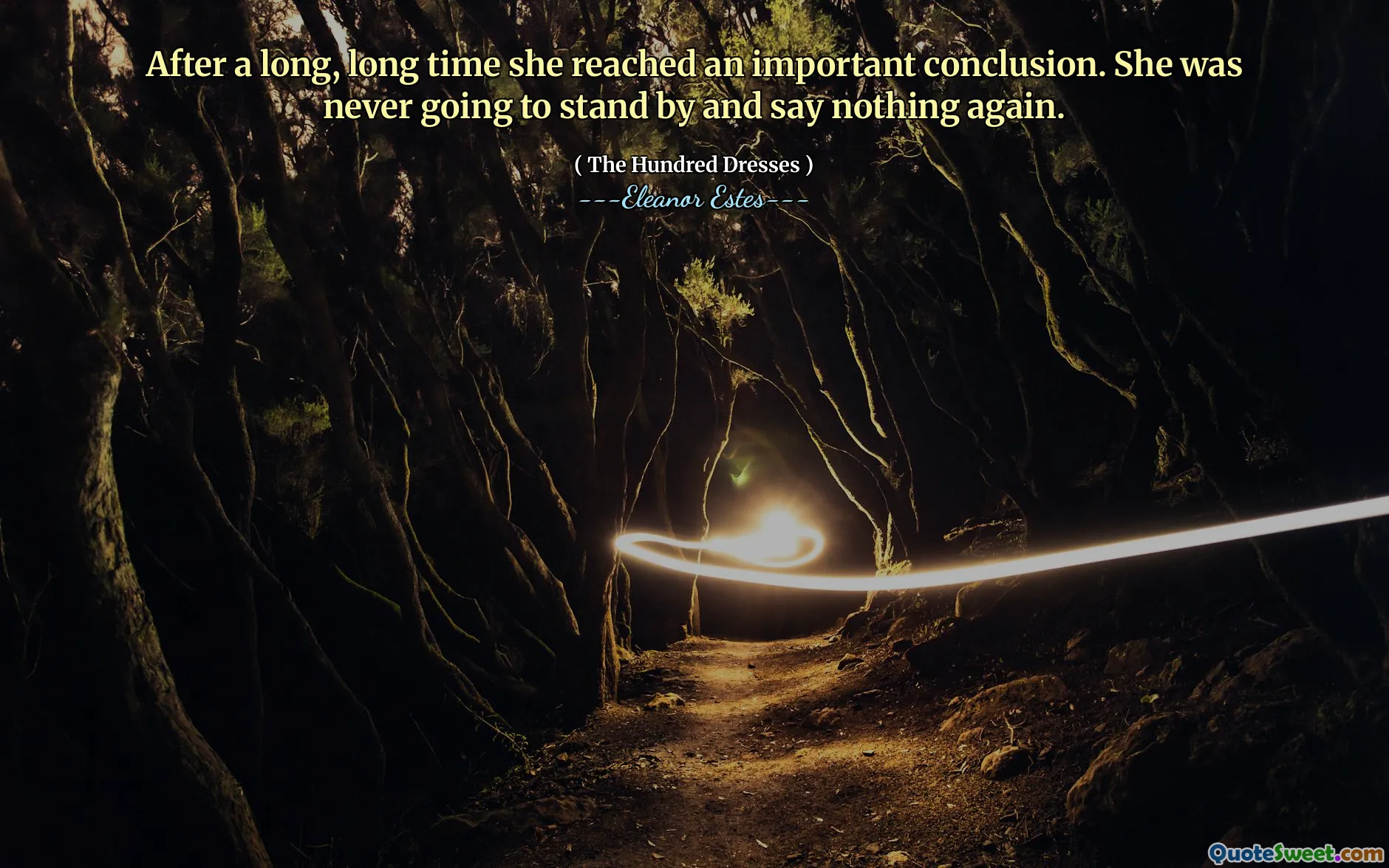
After a long, long time she reached an important conclusion. She was never going to stand by and say nothing again.
This quote captures a pivotal moment of awakening and empowerment. It speaks to the transformation that occurs when someone decides to break free from silence and passivity in the face of injustice or wrongdoing. The phrase "after a long, long time" suggests that this realization did not come lightly or quickly; it was the result of significant reflection, struggle, or perhaps witnessing unfairness repeatedly. It's a powerful acknowledgment of the courage it takes to speak out, especially after being silenced or feeling powerless for so long.
In the context of The Hundred Dresses by Eleanor Estes, this sentiment resonates deeply, as the story explores themes of bullying, empathy, and the consequences of standing by silently. The quote suggests a turning point where the individual commits to no longer being a bystander but rather to actively engaging and expressing truths—be it defending others, claiming personal dignity, or challenging wrongful behavior. There is both sadness and hopefulness embedded in this realization: sadness for the times lost in silence and hope for the future impact of this newfound resolve.
From a broader perspective, this quote honors the human struggle with fear, conformity, and courage. It encourages readers to recognize the importance of their voices and actions and to appreciate the strength it takes to break the cycle of silence. It underscores the idea that speaking up is not only an act of self-liberation but also a commitment to justice and change in the wider community. It is an invitation to reflect on moments when we might have stayed quiet and challenges us to be braver going forward.






